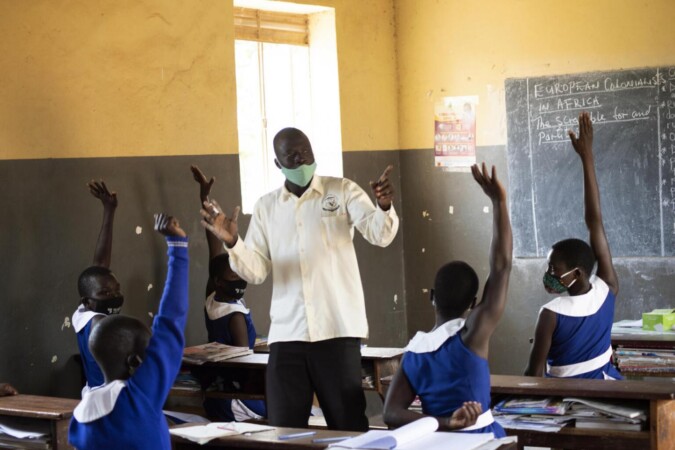KAMPALA, UGANDA; The Ministry of Gender, Labour, and Social Development has amended guidelines for private school teachers who seek to benefit from relief cash transfers, reducing the number of beneficiaries and increasing the amount for each of them.
A week towards the full resumption of schools in Uganda, GiveDirectly, an international non-government organization that focuses on poverty alleviation and humanitarian relief provided 30 billion Shillings to support vulnerable people impacted by the COVID-19 containment measures.
After consultations, the government resolved to extend the cash relief to teachers. Initially, the program targeted to reach out to 300,000 teachers in private primary and secondary schools who were to get 100,000 Shillings each. However, this has been adjusted to allow full utilisation of the relief fund according to Aggrey Kibenge, the Permanent Secretary in the Ministry of Gender.
“The relief package for each teacher be adjusted upwards from 100,000 to 200,000 Shillings. The total target number to receive the relief package be adjusted from 300,000 to 150,000 and this will be on a first come first serve basis,” Kibenge’s letter reads in part.
Teachers eligible for the program include those who are not on the government payroll, are duly registered or licensed by the Ministry of Education or have proof of submission of application for registration, and those who were already teaching in a school licensed or registered by the Ministry of Education before the beginning of the COVID-19 lockdown in March 2020.
According to Kibenge, the changes have been made after realizing that many teachers in private schools are not registered and the initial target included many part-timers from government schools who are already on the government payroll. Besides changes in the amount and number of beneficiaries, the ministry has also expanded the programme to teachers in vocational and health training institutions.
Additionally, teachers who benefited from the government’s COVID-19 cash support program famously known as Nabbanja cash which was distributed to vulnerable people between June and September 2021, are not eligible for this programme.
But despite the explanation, sources indicate that the ministry had failed to attract teachers yet the programme has a timeframe.
“From the beginning, teachers on the payroll and the unregistered were not eligible to benefit from the programme. But there was no mobilisation on how the programme works, and many headteachers who are responsible to provide data are not aware. With such problems, the programme is delaying yet it had a timeframe,” one of the sources consulted for the story noted.
Frank Mugabi, the Ministry of Gender spokesperson declined to divulge details about the allegation but cited that a few teachers had been fed into the system. He noted that by Monday afternoon, only 7,000 teachers had applied for the cash yet the programme is expected to end in February which is days away.
Mugabi adds that many other headteachers who are failing to provide their payrolls for the ministry confirm that the names of the teachers entered in the system were employed at a given school at the time of closure of schools in March 2020.
As a requirement, headteachers of private primary and secondary schools were urged to upload data of eligible teachers through an online portal (cash relief.mglsd.go.ug). But they had to attach payroll data for one month of either January, February, or March 2020 as evidence of salary payment. The payroll must include a signed payment roster, bank instruction/statement, or mobile money statement depending on how salaries are paid in each school.
Mugabi further notes that those who intend to benefit from the programme, even teachers who have since left the profession during the school closure are advised to apply since they were teaching before the Covid-19 induced lockdown.
Lucy Abulo, the senior manager in charge of talent and external relations at GiveDirectly, says they are actively engaged with the government regarding the changes to ensure rational implementation of the programme. “Given the data realities, this is the most realistic decision, double transfer per individual teacher as well as have many teachers within the target (private) reached within the remaining timeline,” says Abulo.
If you would like your article/opinion to be published on Uganda’s most authoritative news platform, send your submission on: [email protected]. You can also follow DailyExpress on WhatsApp and on Twitter (X) for realtime updates.



